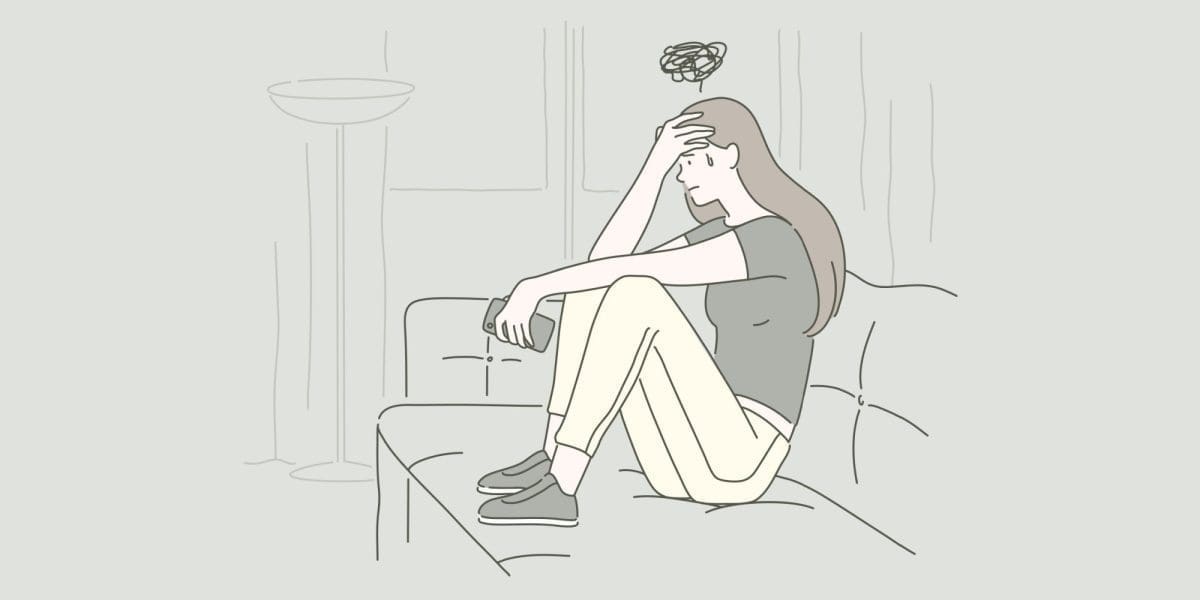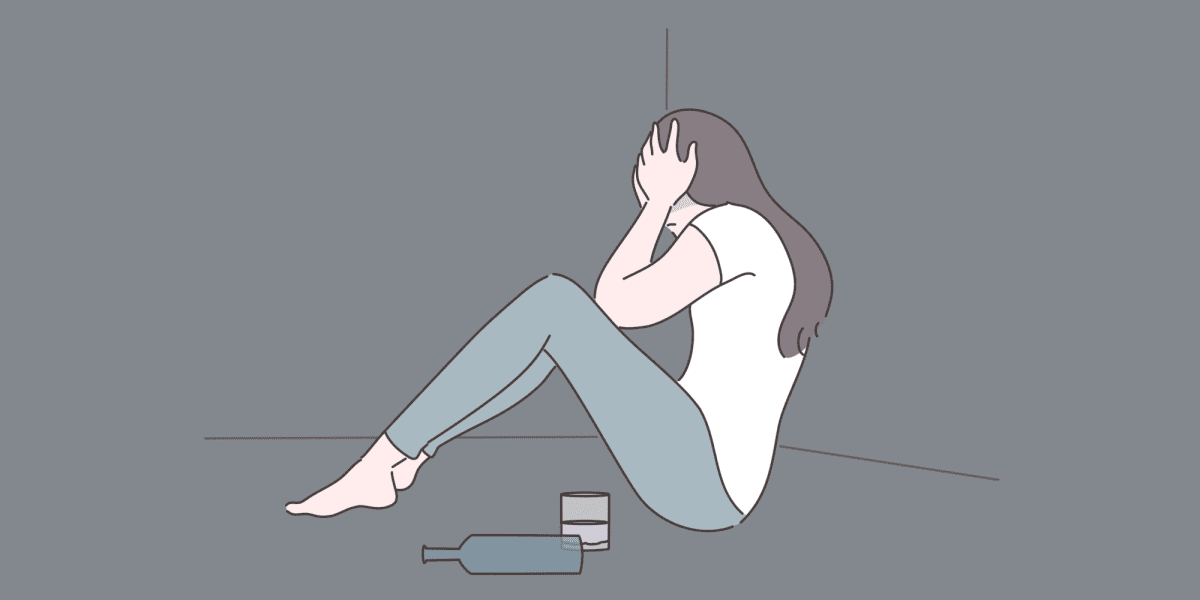Anxiety disorder inpatient treatment provides struggling individuals with the highest level of care. Its immersive, evidence-based treatment options target the core problems responsible for someone’s anxiety. With time, patience, and professional support, anyone can overcome the weight of anxiety.
If your anxiety disorder controls your life more than you do, it may be time to reach out for help. If you feel uncertain, The Willough at Naples is here to help you organize your thoughts. Today, we will discuss five specific signs that you could benefit from attending an anxiety disorder inpatient program.
Different Types of Anxiety
As the name implies, anxiety disorder inpatient treatment exists to help those with anxiety disorder. But what all does that encapsulate?

“Anxiety disorder” by itself is typically not a full diagnosis. Instead, it refers to a class of mental health conditions characterized by the frequent presence of worry, panic, or fear. In some cases, this anxiety only occurs in response to very specific stimuli, while others face more general anxiety.
In either case, someone’s symptoms must persist for longer than two weeks to be considered an anxiety disorder. Occasional bouts of worry in response to normal life stressors are not cause for concern on their own. However, if someone’s anxiety shows no signs of stopping even after the perceived threat has passed, they may have an anxiety disorder.
Common types of anxiety disorders include:
- Generalized anxiety disorder
- Social anxiety disorder
- Obsessive-compulsive disorder
- Post-traumatic stress disorder
- Panic disorder
- Phobias
Each type of anxiety disorder has its own diagnostic criteria and symptoms. However, for the purposes of this sharing information, instances of the term “anxiety disorder” moving forward will be used as an umbrella term for any of the above.
Know that all anxiety disorders stand to benefit from inpatient treatment. In other words, no matter what type of anxiety you experience, it’s equally as important to watch out for the following signs. If you find yourself exhibiting any of them, consider reaching out to an anxiety disorder inpatient treatment program.
5 Signs It’s Time to Seek Inpatient Treatment for Anxiety Disorder
Not everyone who lives with an anxiety disorder needs inpatient treatment. Some individuals with minor cases are able to manage their symptoms with tools like medication and psychotherapy. In fact, for some people with an anxiety disorder, inpatient treatment may feel like a last resort. It is a highly intensive treatment method, and it disrupts someone’s normal routine for its duration.
However, other individuals may feel overwhelmed by that same routine, wish to improve its overall quality, or lack a sense of routine entirely and feel lost. For them, inpatient treatment can serve as the guiding hand they need to regain control over their lives.
In addition, remember that anxiety disorder inpatient treatment is not only for those who have hit their lowest point. Many people can benefit from a more involved level of anxiety disorder treatment, and there is no shame in that. Below, we’ve outlined five warning signs that someone might want to consider reaching out for more support.
1. Struggling to Complete Daily Tasks
One of the most telling signs of needing anxiety disorder inpatient treatment revolves around someone’s daily functioning. It is much easier for them to delay seeking treatment if they can still successfully navigate life at home, school, or work.
On the other hand, if someone’s performance in those areas starts to slip, they likely shouldn’t continue to put off getting help. Ultimately, once daily functioning becomes laborious, it is easy for circumstances to quickly worsen and grow out of control. For example, consistent trouble at work could lead to someone getting fired, which would only cause additional anxiety.
To elaborate on what “trouble at work” could mean, keep in mind that anxiety-driven dysfunction can manifest in numerous ways. Someone may struggle to make it to work on time. Others may not have a hard time with attendance, but their quality of work may decline instead.
The same can be said for those in school. For instance, if they experience difficulty completing their assignments due to an anxiety disorder, it may be time to reach out for professional help. An anxiety disorder inpatient program removes individuals from potentially stressful environments and lets them focus on recovery. Afterward, they can return even better than before.
2. Losing or Withdrawing From Support Groups
Anxiety disorders can make it difficult to maintain relationships. Depending on the type of anxiety someone experiences, they may avoid leaving their home more than is absolutely necessary. This can lead to them missing out on time with friends and family members. Over time, they may drift apart.
Alternatively, other types of anxiety can cause someone to feel paranoid about how their loved ones feel about them. A small seed of doubt can grow into a considerable rift between people. Potential mood swings and irritability caused by anxiety disorders can also do the same.
For these reasons, the status of someone’s support groups can help determine whether they need anxiety disorder inpatient treatment. If someone finds themself feeling alone in their struggles, especially after losing or pushing away the support they once had, it may be time to get help.
Anxiety treatment centers provide the resources needed to not only rebuild past relationships, but forge new, recovery-minded bonds as well. Maintaining a network of support groups cushions the challenges of anxiety disorder treatment with warm motivation and encouragement. Most of life’s trials are easier to face with support, and anxiety is no different.
3. Declining Physical Health
Some people may reject anxiety disorder inpatient treatment due to the misguided claim that anxiety is “all in your head.” These same people tend to overlook the fact that the brain is intrinsically connected to nearly every other facet of the human body. Thus, it should come as no surprise that, despite being classified as a mental illness, anxiety disorders can impact someone’s physical health as well.
Some of the physical impacts anxiety disorders can have include:
- Shortness of breath
- Insomnia
- Chest pain
- High blood pressure
- Fatigue
- Gastrointestinal issues
- Headaches
- Dizziness
- Weakened immune system
- Muscle pain
If you experience physical symptoms with no discernible cause other than anxiety disorder, inpatient treatment may help soothe your discomfort.
4. Turning to Substance Abuse as a Coping Method
Anxiety disorder inpatient treatment may not be someone’s first thought when they’re having panic attacks or experiencing prolonged periods of stress. Instead, they may look for an immediate, accessible answer, regardless of whether it is a healthy or sustainable option.

Sometimes, when people feel anxious, they like to have a drink of alcohol to “take the edge off.” Unfortunately, if someone with an anxiety disorder attempts to self-medicate with alcohol or drugs, they may develop an unhealthy pattern of substance abuse. Over time, this can spell addiction.
When addiction coincides with mental health issues like anxiety and depression, they’re referred to as co-occurring disorders (or dual diagnosis). Co-occurring disorders complicate the treatment of both conditions due to the ways in which they feed into each other. Symptoms of one often worsen the other, creating a ruthless cycle of deteriorating behavioral health.
Also note that substances like drugs and alcohol are not the only red flags to watch out for. A poor relationship with food can have dangerous long-term implications as well. For example, if someone partakes in binge eating or stops eating enough, they increase their risk of developing an eating disorder.
Eating disorders have a highly detrimental impact on someone’s mental and physical wellbeing. To avoid these dangers, struggling individuals should seek anxiety disorder inpatient treatment as soon as they consider self-medicating with illicit substances or food.
5. Outpatient Treatment Isn’t Working
Many individuals explore outpatient treatment options before considering a inpatient treatment center. For example, they may take medication for anxiety or attend sessions of talk therapy.
However, most outpatient therapy programs don’t involve daily sessions. Instead, they may only take place once a week, or sometimes, even less frequently than that. For those experiencing severe, debilitating anxiety, such limited exposure to therapeutic activities may not provide a high enough level of care.
Outpatient treatment can be highly effective for those with less drastic cases of anxiety disorder. That being said, even those who have been helped by outpatient treatment can still benefit from anxiety disorder inpatient treatment.
This is especially true for individuals who feel as though their improvements have slowed or stopped completely. If someone hasn’t seen any recent improvements but still thinks they have room to grow and recover, an anxiety disorder inpatient treatment program could be their next step forward.
Anxiety Disorder Inpatient Treatment Programs
The Willough at Naples provides a wide range of services for individuals in psychiatric distress. The first of these is our adult psychiatric program, which encompasses our anxiety disorder inpatient treatment.
This program emphasizes important coping skills like self-esteem, emotional inventory, and communication. By learning these skills and using them to replace unhealthy habits, individuals with anxiety disorders can start to understand how to manage their condition.
During anxiety disorder inpatient treatment, patients can expect to participate in treatment options like:
- Psychiatric evaluation
- Individual therapy
- Group therapy
- Recreational therapy
- Medication management
- Family counseling services
- Discharge and aftercare planning
Furthermore, The Willough at Naples also offers a specialized dual diagnosis program to provide addiction treatment for those with co-occurring disorders. This program utilizes many of the same treatment options as our anxiety disorder inpatient program, but it also employs several important additions. These include relapse prevention planning and easy access to a separate medical detox program.
Get Anxiety Disorder Inpatient Treatment in Florida Today
The Willough at Naples is a mental health treatment center that helps individuals with mental illnesses like anxiety disorder. We pride ourselves on our tranquil, retreat-like facility and the optimal, encouraging atmosphere it provides patients.
If your battle with anxiety disorder makes you feel like it takes all your strength just to keep your head above water, we can be your lifeboat. At The Willough at Naples, every patient is valued as an individual with unique experiences and needs. You will work with a team of licensed medical professionals to develop a treatment plan tailored to your specific situation.
When you are ready to learn more about our anxiety disorder inpatient treatment program, give us a call at (239) 688-3063 or submit a confidential contact form online. Our admissions team will be more than happy to answer any questions you have. They can provide you with all the information and resources you need to plan your next step forward.

